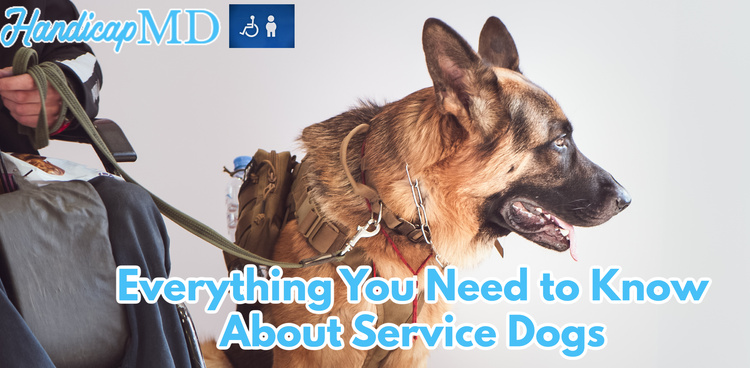
Explore Some Information on What You Need to Know About Service Dogs
Service dogs are integral to the lives of people living with disabilities. Service dog ownership has increased dramatically and there are more than 500,000 service dogs in the United States. These dogs offer many benefits depending on the type and training, such as guide, allergy detection, and mobility.
In this article, we'll discuss everything you need to know about service dogs, including the different types, popular breeds, and how to get a service dog.
Medical content reviewed by Dr Eric Jackson-Scott MD, Chief Medical Officer
What is a Service Dog?
Service dogs are task-trained dogs that help disabled people live a more independent life. The service dogs are trained to perform various tasks for people with disabilities. The laws governing service dogs are indicated in the Americans Disability Act (ADA).
Service dogs perform tasks directly related to their person's disability as they're trained to take specific action whenever required.
Types of Service Dogs
There are different types of service dogs, depending on their specific training. They include:
· Guide dogs- help people with visual impairments navigate their environment.
· Medical alert dogs- the onset medical issues like low blood sugar or seizure and alert on the presence of allergens.
· Mobility dogs- assist individuals using wheelchairs and other walking devices navigating easily.
· Hearing dogs- help alert people with hearing problems to important sounds.
Service dogs are very different from emotional support dogs and therapy dogs. Emotional support dogs offer emotional comfort to their owners and don't require any special training.
Therapy dogs offer emotional support on a psychological level and can work with several different people.
Popular Breeds of Service Dogs
- Some dogs are perfect as service dogs, while others don't fit this category. The most common service dog breeds are:
- German Shepherds, Golden Retrievers, and Labrador Retrievers are the common breeds trained as guide dogs.
- Bernese Mountain Dogs and Great Danes possess the required height and strength to offer mobility assistance.
- Poodles are very versatile, and they come in standard, miniature, and toy varieties. Toy Poodle puppies start scent training at an early age for their work of alerting blood sugar variations. On the other hand, standard Poodle puppies learn activities such as carrying objects and activating light switches.
The training of service dogs starts at birth and are trained on how to respond to specific needs. When selecting breeds and specific dogs to train as service dogs, several factors are considered. These include the dog's health, the production history of the sire & dam, trainability, physical attributes, and temperament. Only the best is chosen.
How to Get a Service Dog
There are many professional service dog individuals and training organizations spread throughout the U.S. The non-profit and profit organizations charge differently for a service dog.
The cost of training a service dog can be as high as $ 25,000. But some organizations give service dogs for free.
ADA allows individuals with disabilities to train their service dogs if they can't afford professional services.
Is A Service Dog Right for You?
Hopefully, you now have a better understanding of service dogs and their duty in helping people living with disabilities. It's important to note that service dogs are more than pets & companions, and they enhance independence for people living with disabilities, thus improving their lives.
.png)






